Dig In: 7 Gardens Working to Grow Community
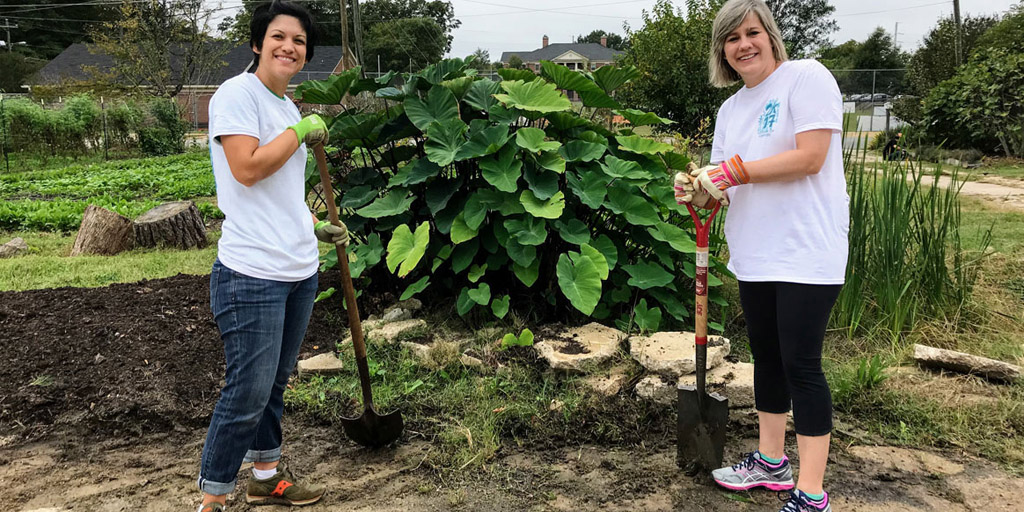
Tweet This
From lush, green lettuce, to vine-ripe tomatoes, to fragrant herbs, there’s no better place to celebrate summer — and thriving community — than in lush outdoor spaces.
Community gardens bring people together, increase access to better food, and introduce younger generations to the pleasures of connecting to our wild living planet by being nourished from their own home-grown fruits and vegetables. And with many programs and classes, these healing spaces also grow a new generation of food justice leaders and stewards to the Earth.
Here are seven community garden programs across the country that have us inspired:
Social Justice Learning Institute
Inglewood, California
“In our neighborhood, it’s difficult to have access to food that will support learning and support health,” says Nicole Steele, health equity program manager for the Social Justice Learning Institute.
Steele launched a campaign in 2011 to help start 100 home gardens in the city of Inglewood (a box garden program that helped renters start growing). The program exceeded that goal, and now operates seven large school and community gardens around Inglewood. Steele says the organization worked closely with people in the area to decide what to plant at its 32-bed community garden at Queen Park. “We have tomatoes and squash and melons. There’s strawberries out there, peas and green beans, collard greens, and lots of herbs,” she says. “One of the things I’m really proud of is that it works for our community.”
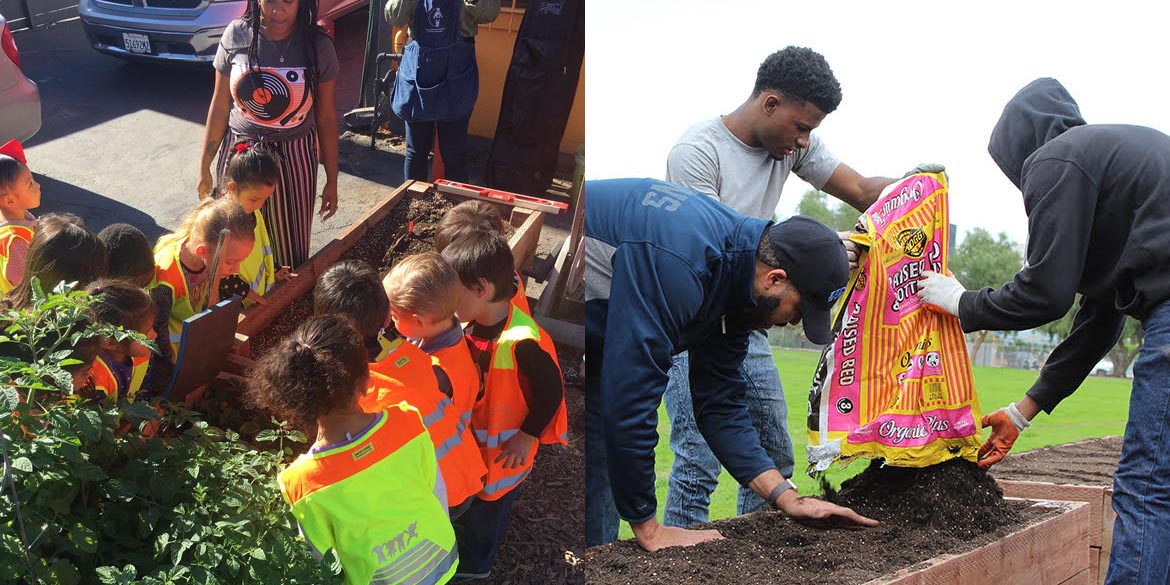
Photo courtesy of Social Justice Learning Institute
Unity Gardens
South Bend, Indiana
Along with its 7-acre flagship site, Unity Gardens helps support more than 50 locally-organized community gardens around South Bend each year, at locations including churches, nonprofits, neighborhoods and even prisons. Supported with help from volunteers, and with donated supplies like seeds and tools, participating gardens don’t distribute or sell the produce they grow, but instead operate as “edible parks,” which anyone is welcome to visit to pick food and take home (volunteer garden leaders show people how to harvest ready crops without damaging the plants). “It’s a cultural values shift,” says Sara Stewart, founder and executive director, “a unique, dignified free-food model.”
"Everybody is connected through food."
Conetoe Family Life Center
Conetoe, North Carolina
Founded with a goal of addressing the cycle of poverty, the Conetoe Family Life Center introduces young people to healthy foods, physical activity, and health services, through a volunteer gardening program.
Since starting with a 2-acre garden in 2007, the program has expanded to five sites around the Conetoe area today, with more than 60 children participating. Half the farm’s harvest is donated to area families in need, while the remaining produce is sold at a local CSA, with the proceeds going to support the program.
In the organization’s latest project, youth members converted an old school bus into a honeybee hive. The “bee bus” supports better crop pollination for the farm, and honey sold at local farmers markets supports scholarships for Conetoe children.
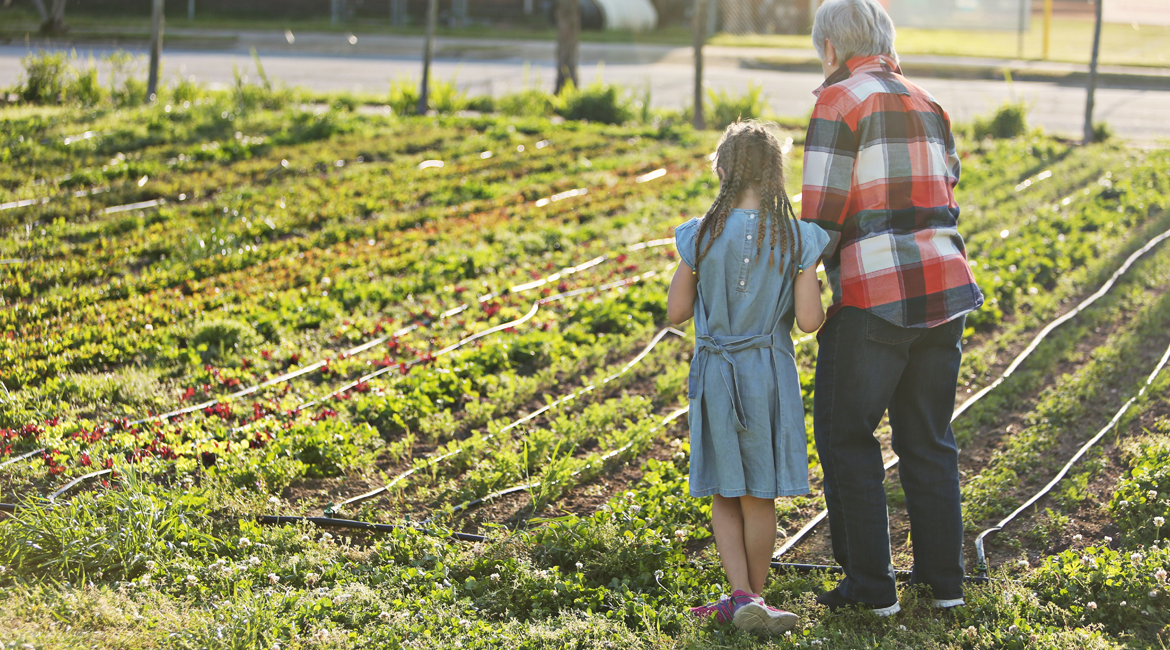
Photo courtesy of Raleigh City Farm
NC Interfaith Power & Light
Raleigh, North Carolina
“Our organization is working to address climate change as a moral imperative,” says Susannah Tuttle, director of NCIPL, and a board member of the national IFPL organization.
In addition to helping churches reduce their carbon footprint by becoming more energy efficient or converting to renewable power sources, NCIPL facilitates community gardens for faith-based groups, and provides information and resources to help clergy talk with their faith communities about issues like climate change. “We realized that congregations wanted to address climate issues from a perspective that was directly related to how they come together in fellowship,” Tuttle says, “and everybody is connected through food.”
A new campaign, “Sacred Foodwaste,” introduces composting as a tool to collect carbon from the atmosphere as vegetable scraps, and restore it to the Earth.
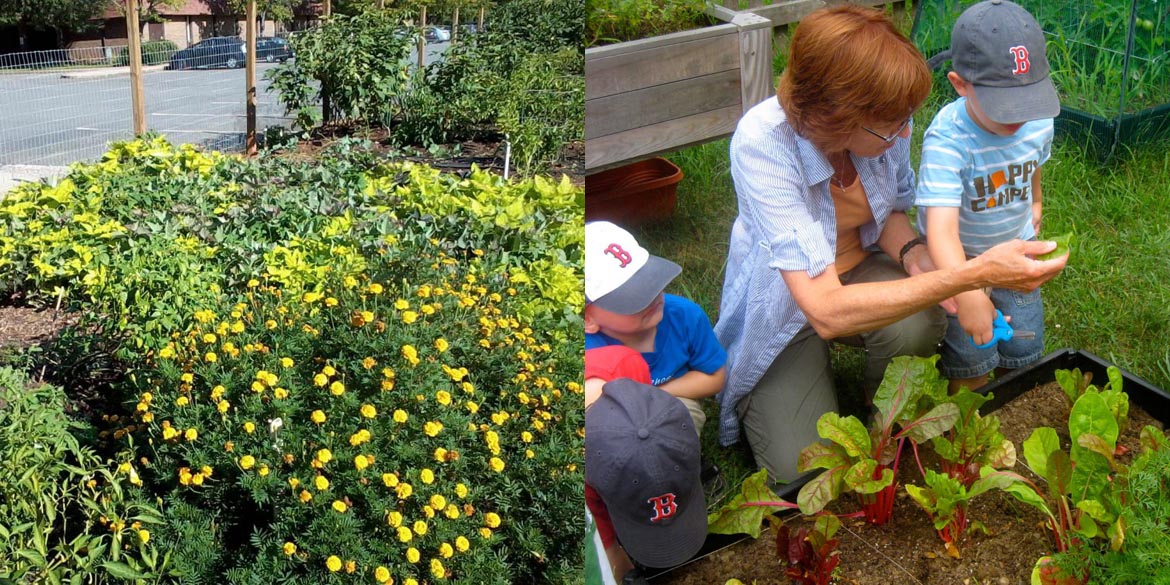
Photo courtesy of NC Interfaith Power & Light
The Hub Farm
Durham, North Carolina
A 30-acre farm and forest run by Durham Public Schools serving local youth, the Hub Farm is a place for local schoolchildren to learn and explore. Children learn about health and nutrition by growing and preparing fresh foods, and classes also give them a chance to practice reading, math, and science through farm work. The Hub also works with schools on special long-term projects that teach problem-solving, teamwork, and care for the natural environment.
In 2016, students worked with local architects, university faculty and other professionals to build a “floating lab,” an outdoor classroom on the farm’s pond. In addition to academically-oriented classes, the Hub caters to students preparing for trade careers, offering free programs to young people studying fields like agriculture, landscaping, culinary arts, and construction.
Oakland Avenue Urban Farm
Detroit, Michigan
Founded in 2008 with a mission to bring fresh, healthy, organic food to Detroit, Oakland Avenue Urban Farm includes five active food-growing sites on 6 acres in the North End of the city.
“There was a lot of opportunity here, because there was a lot of vacant land,” says Jerry Hebron, executive director.
The organization sells its produce at farmers markets, as well as directly to local chefs. The farm’s employees and volunteers plant a lot of tomatoes, beans, okra, squash, cabbage, and sweet potatoes — appealing to the local community.
“We grow a lot of foods that people ate who came from the South,” Hebron says. “We sell out of crowder peas — we’re taking orders now, and we haven’t even put the plants on the ground.”
Upcoming projects include installing green roofs on farm buildings, building a community bread oven and clearing land and installing infrastructure for two apple orchards this fall. If all goes well, the farm will begin selling apples in two years.
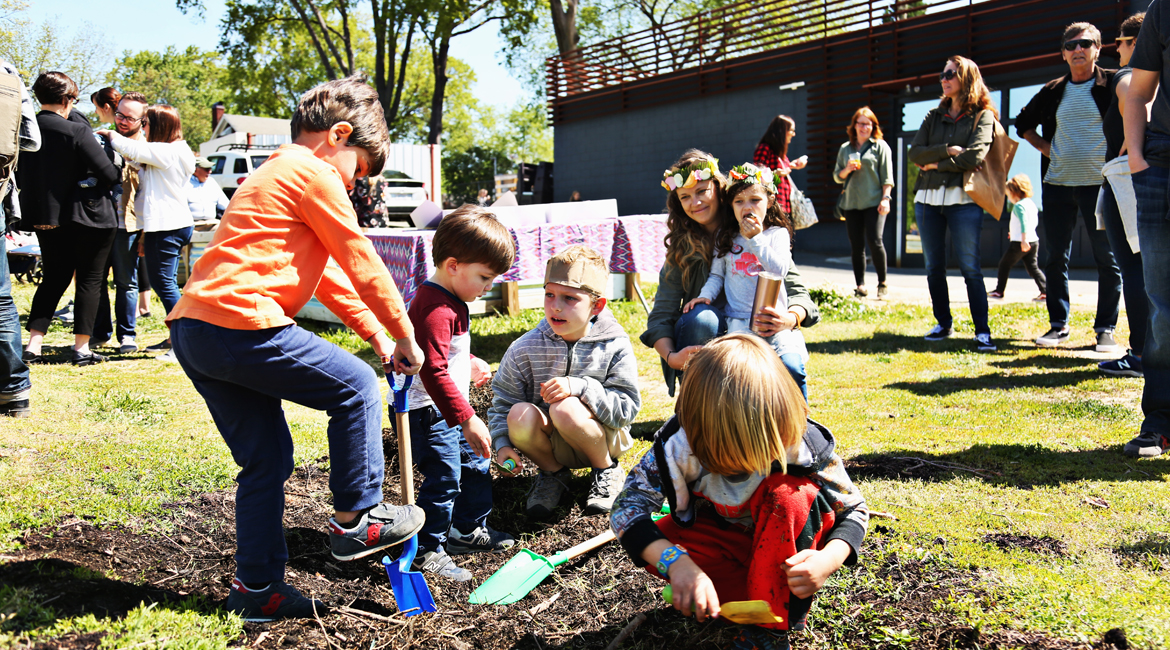
Photo courtesy of Raleigh City Farm
Raleigh City Farm
Raleigh, North Carolina
Celebrating the concept of “dig where you live,” Raleigh City Farm operates on 1.3 acres in the heart of Raleigh, North Carolina. Volunteers pitch in on weekend work days, as well as “Wine and Weed Wednesdays,” a drop-in hour of relaxed sunset weeding. Other events include classes on gardening, foraging, pickling, as well as seasonal outdoor yoga classes.
“Our focus is that of the farmer, with a mission to help grow the next generation of farmers by connecting our community through sustainable agriculture,” says General Manager Rebekah Beck.
What’s Next?
OMD is working with folks in North Carolina to change the food system by getting more plant-based foods in restaurants and K-12 schools. Learn more today.


